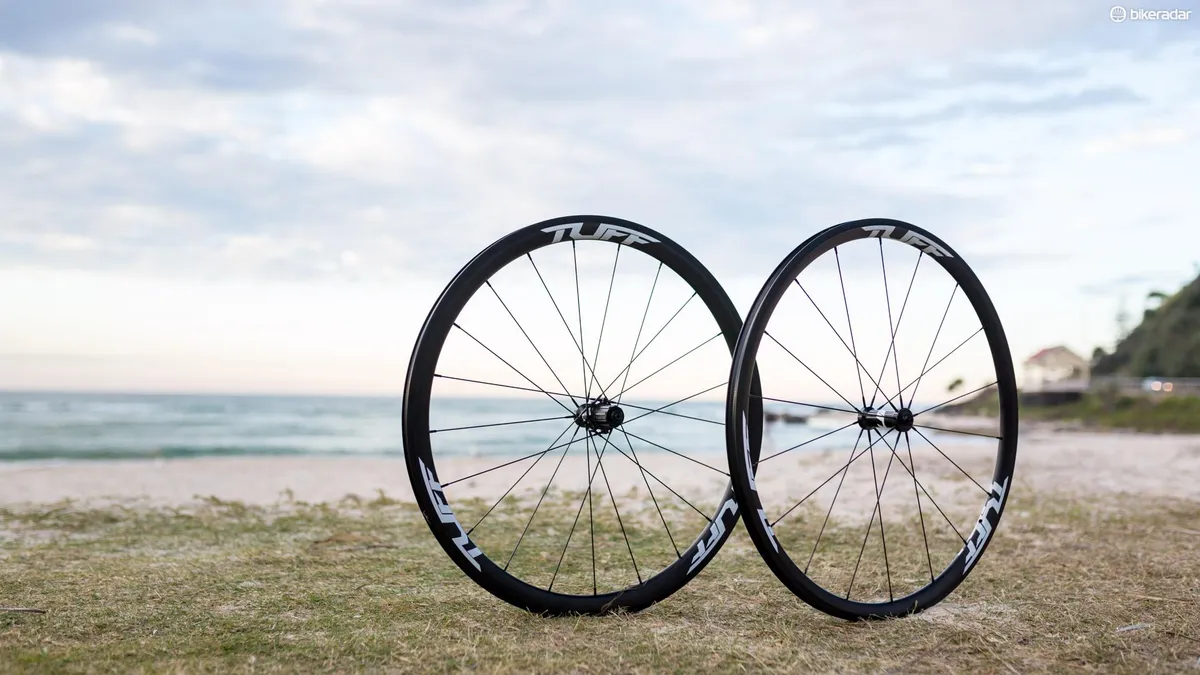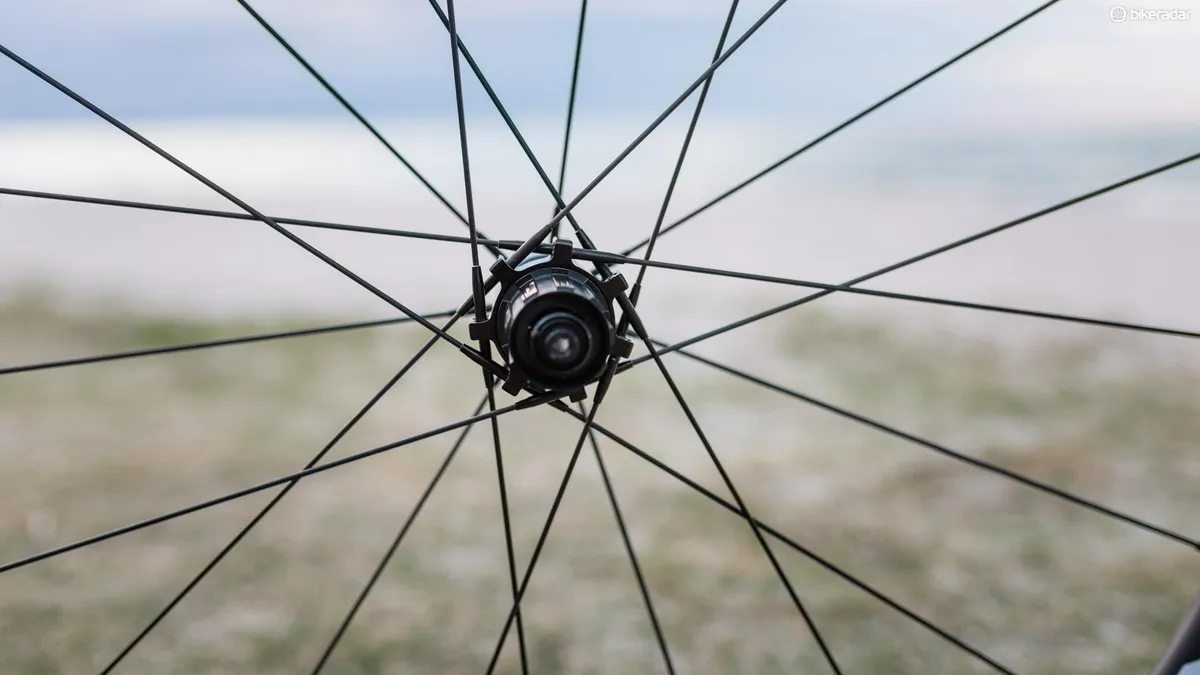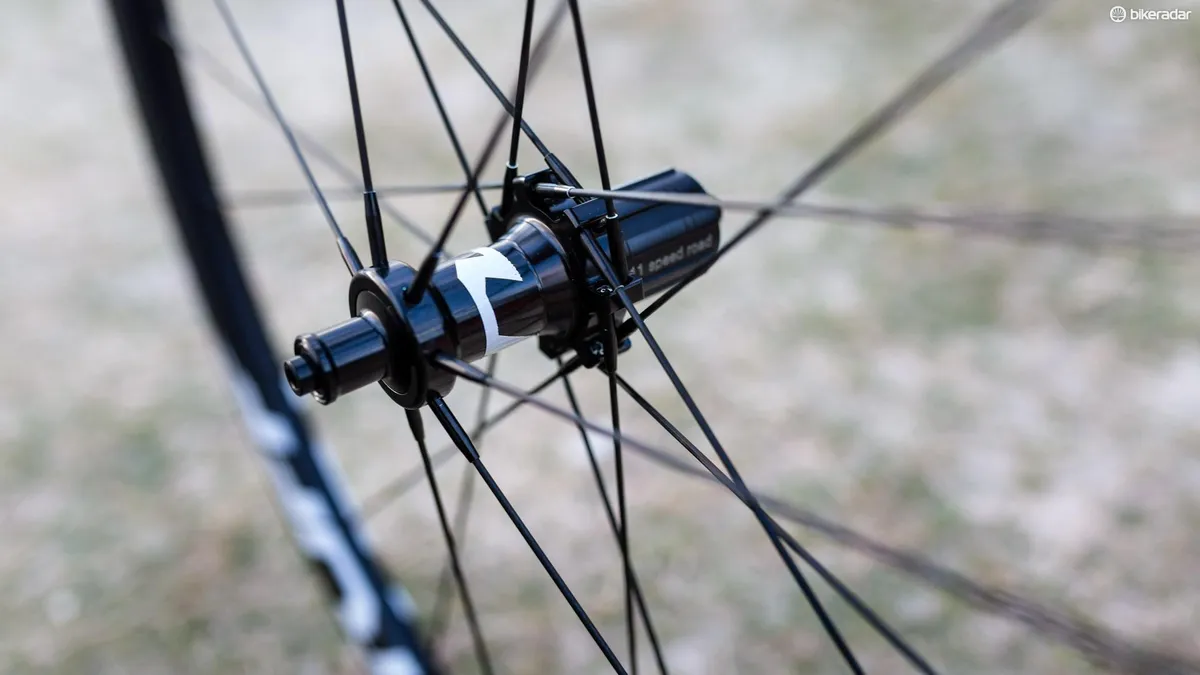When it comes to carbon wheels, “boutique” brands selling an open mould rim spinning on a DT Swiss or similar hubs with Sapim spokes are a dime a dozen.
- Best road wheels – our top picks
- 10 of the best deep aero wheels lab tested
- Fulcrum Speed 40 clincher review
Quite often these brands aren’t particularly up front about their rims coming from an open mould design, and for that matter haven’t done much design work at all. Instead, they cover them with a cool logo and pretty decals.
Tuff Cycle’s Exo 30-38 wheels, however, do not fall into this category. Hailing from Melbourn, Tuff Cycle has taken an open mould, toroidal rim shape and produced a wheelset that in reality is much lighter than many hoops of a similar depth from the likes of Zipp, Mavic and Campagnolo.
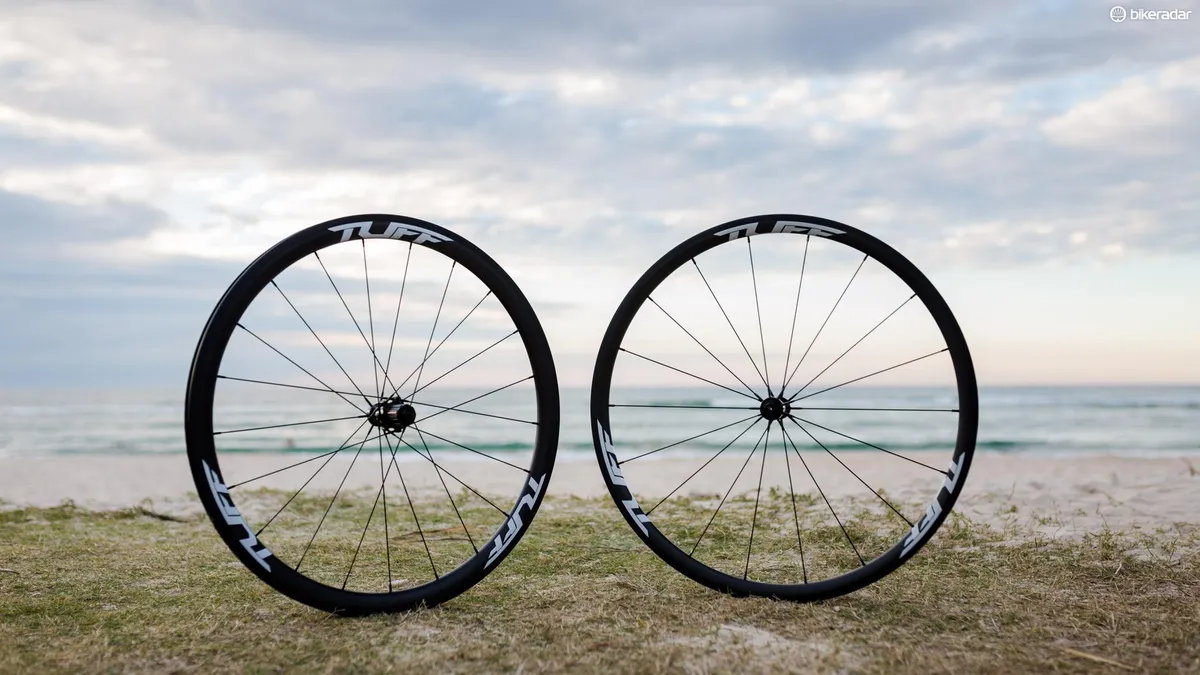
Claimed to weigh just 1,240g, the wheels without rim tape or skewers weighed 1,230g on our scales of truth. With the included heavy duty rim strips it brings the total to 1,310g, 60g over the claimed weight but still pretty close — you could easily drop 10-20g per wheel with a lighter weight rim strip.
They’re also tubeless-ready and once we applied two layers of Stans tape and valves the Exo clinchers tipped our scales at 1,282g.
While the basic rim design is something you have probably seen before, Tuff Cycle’s Carbon MATRIX Spokes are not.
Carbon spokes are not brand new — Mavic's R-SYS wheelset rolls on non-tensioned carbon spokes and Sapim released – and shortly thereafter discontinued – its CX carbon spoke a fair few years back.
The Carbon MATRIX Spokes used here are 2mm in diameter and tensioned like a normal spoke. According to Philip Paton, the Technical Director at Tuff cycle they weigh half of what a standard steel spoke does. This, combined with a bespoke carbon layup designed to keep the rotating mass down, make for a carbon clincher that weighs less than Campagnolo's Bora Ultra 35 (1,370g), Mavic’s Ksyrium Pro Carbon SL C carbon clincher (1,390g), Zipp’s 202 NSW (1,375g), and cost £1,460 / $1,850 / AU$2,050.
The wheels do, however, come with a 100kg max rider weight.
Carbon spokes
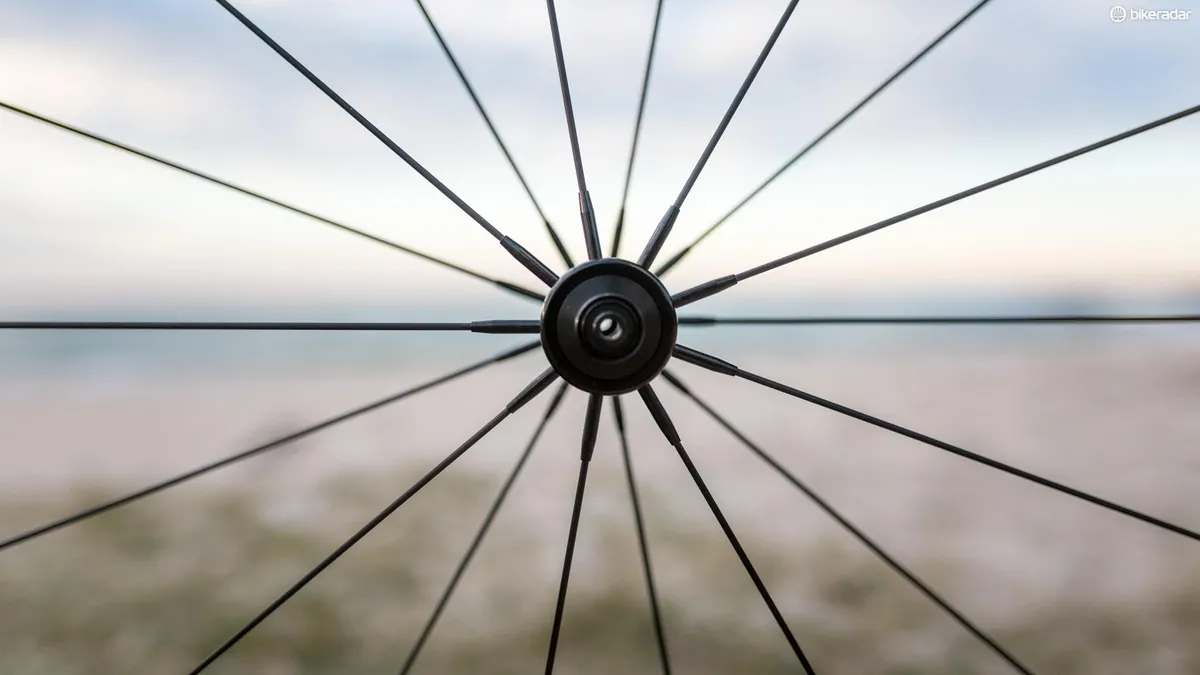
I own a set of Mavic’s R-SYS wheels complete with the 6mm diameter non-tensioned carbon spokes, and I can say with authority they are a royal pain in the butt. The wheels don’t like to stay true, they catch side wind like a sail and the spokes are expensive to replace. They are, however, feathery light.
Carbon spokes always worry me as well, given how fragile the material can be, and in my first look at these wheels, I raised this concern.
Setting up the tires tubeless can be achieved with a good track pump and a bit of elbow grease
Paton pointed out that “most tensioned spoke wheels are assembled with around 110kgf in the spokes. We designed the MATRIX spokes to meet 250kgf before failure, more than most rims can take before cracking. During testing, we had some spokes not fail with 300kgf before we stopped the test.”
Also part of my initial concern was that the use of carbon spokes on the drive side of the rear wheel could make for an expensive mistake. Paton explained that contact which could potentially cut a carbon fibre and compromise one of the spokes would more than likely cause roughly the same damage to a steel spoke, especially a bladed one, but, in the back of my head, I still have some reservations. Lucky for me during my test period I didn't have the chance to test my fears.
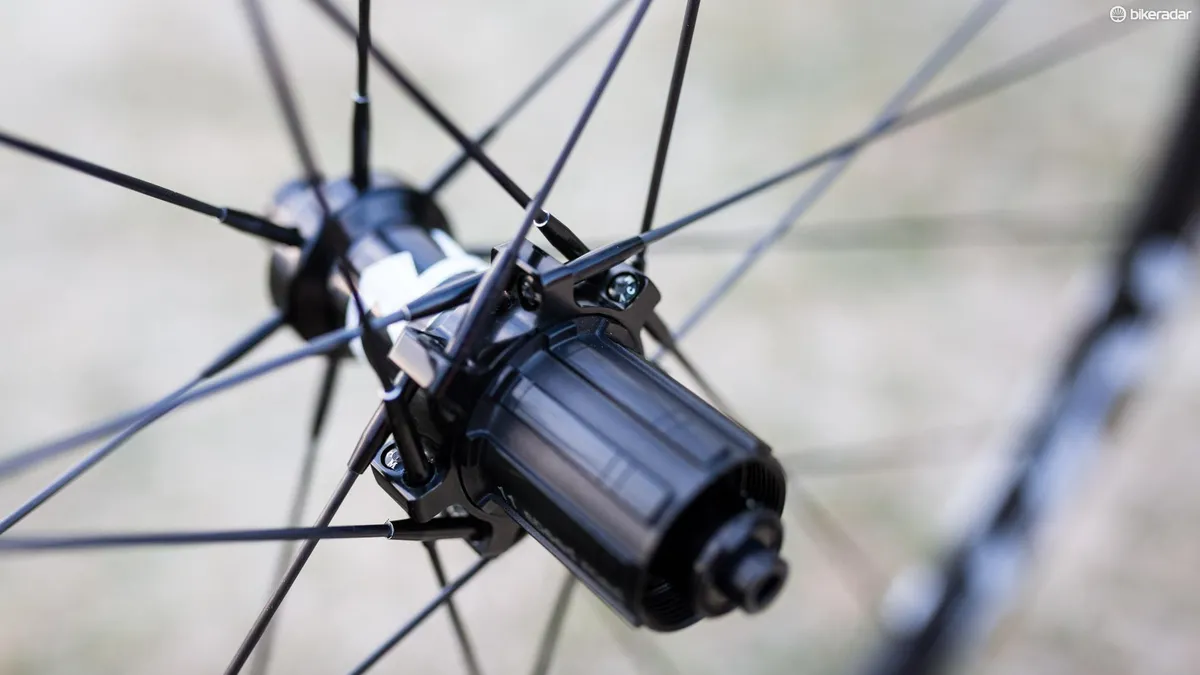
The real downside to these super-light seemingly super-strong spokes is they require a proprietary 6mm nipple and a proprietary connection to a proprietary hub.
They’re light but how do they ride?
As you’d expect, with such a low weight these wheels have some get up and go. They are extremely responsive and spin up with little more than thinking to yourself "I want to go fast."
Over the past few months, I’ve been swapping the Tuff Exo 38-30s around with a set of Zipp 202s and Corima Carbon 32s on my long term Ridley Helium SLX. The EXOs are just as stiff as both of the big name wheels and through my testing, I haven’t been able to elicit a lick of brake rub climbing out of the saddle, nor by purposely trying to get the wheels to flex.
In spite of use as an everyday wheel, on everything from pristine tarmac and ill-advised washboard dirt road the EXOs are still true as the day I pulled them out of the box.
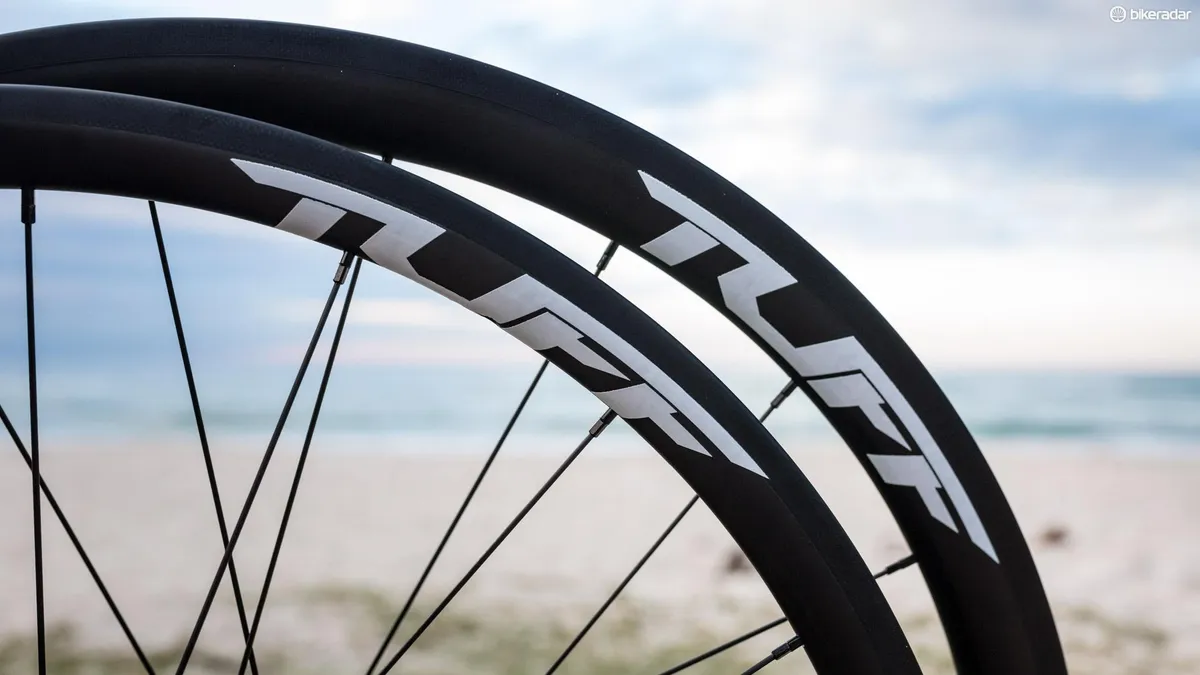
With a 30mm front and 38mm rear wheel mullet setup, Tuff Cycle is aiming to squeeze every bit of wind cheating aerodynamics while keeping the rolling mass to a minimum.
The brand doesn’t make any claims when it comes to aero advantage, and short of taking the wheels into the wind tunnel I can’t quantify anything past feel, but the EXOs do feel aero. When you roll up to about 30kph/18mph they start to exhibit that slippery fast feeling.
When it comes to side winds, however, the EXOs didn’t perform as well as I’d expected, with cross winds and gusts creating noticeable steering feedback especially given the 30mm depth of the front wheel.
This is an area where I believe it’s the EXO spoke and the non-standard external nipples that are to blame. The front wheel has 18-spokes with a snub nose rim profile and shallow depth, none of which should make for much steering feedback. The only thing left is the larger spoke nipples which seems to be throwing the aerodynamics off.
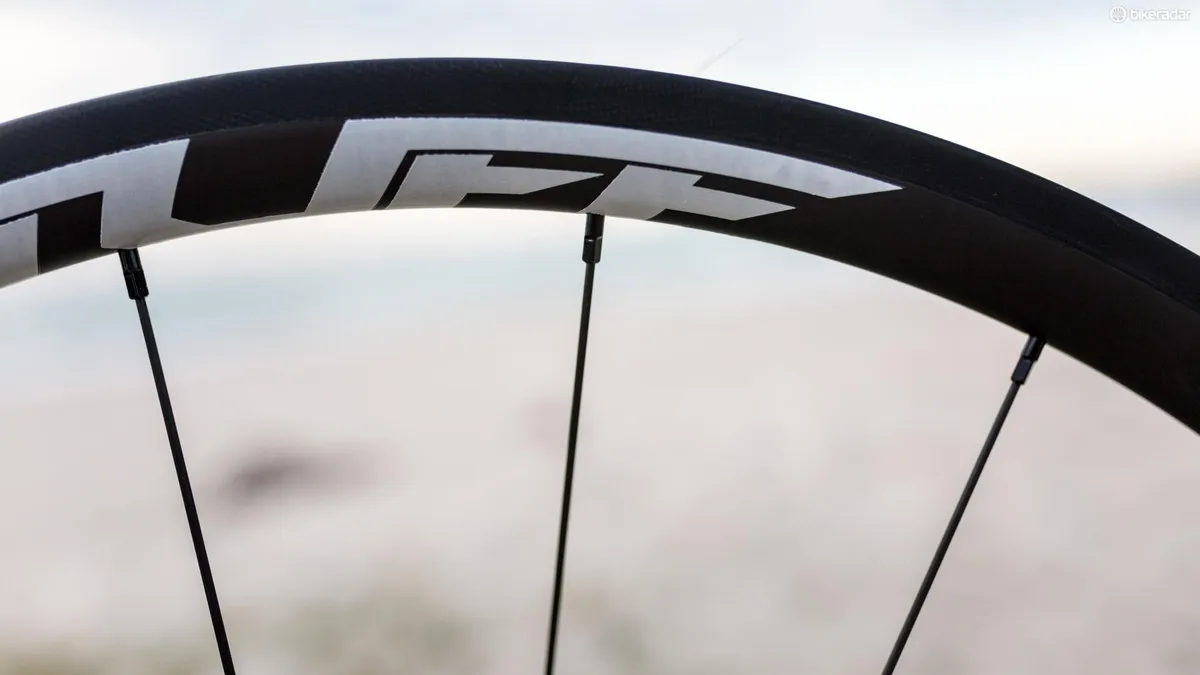
With that said, this buffeting isn’t unmanageable or scary, just more than I expected from a rim of this depth and it is still less than what you'd get from something deeper.
Tubes and without
Over the past few months, I’ve run the EXOs with Vittoria Corsa, Continental GP4000 II, and Schwalbe Pro One Tubeless tires all in 25c, and the 18mm internal width rim supported the casing nicely, allowing for low tire pressures, heaps of cornering grip and comfort on bumpy roads.
Setting up the tires tubeless can be achieved with a good track pump and a bit of elbow grease, and wasn’t particularly difficult, especially with the valve core removed.
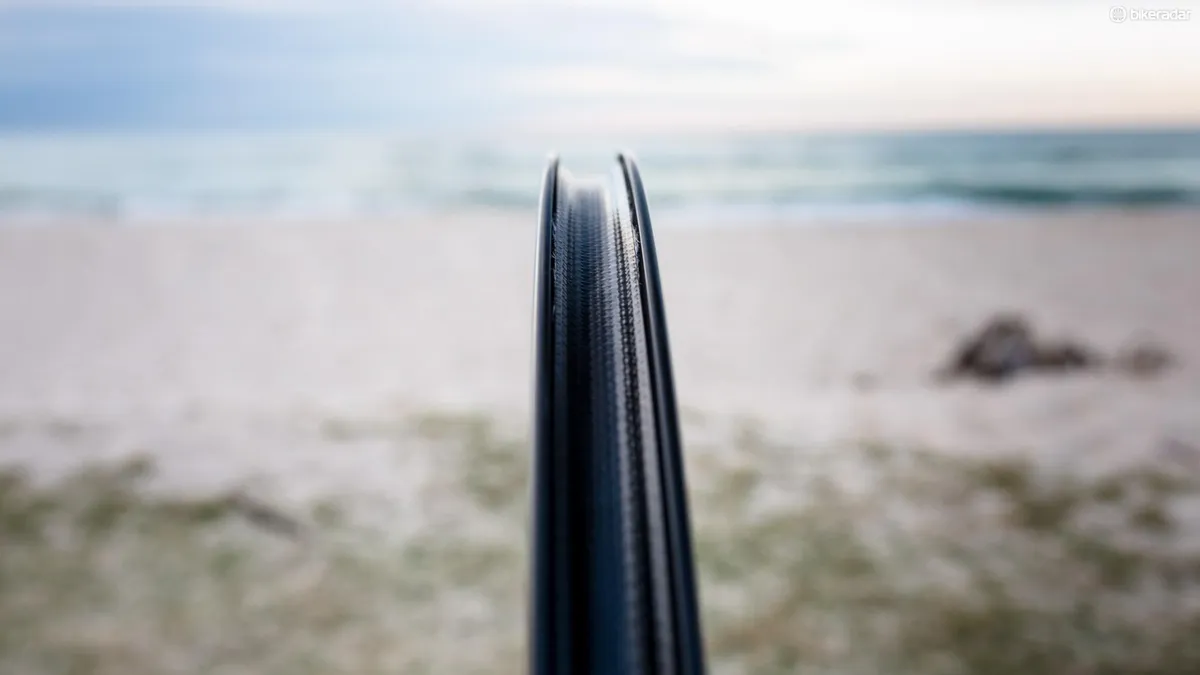
On my first couple of rides on the Tuff wheels, I left the Corima Carbon brake pads I have been using in the bike rather than swapping to the included Dura Heat pads. The brakes felt quite grabby until the pad heated up, however swapping to the included pads made a noticeable difference.
In the wet, the EXO clinchers perform about as well as any other carbon rim: when you squeeze the brakes nothing happens until the pads can clear the water from the brake track.
Although they’re lightweight and they look cool I am not a fan of the included open cam skewers — they create more friction than clamping force and are something you need to keep an eye on as they will likely come loose over time.
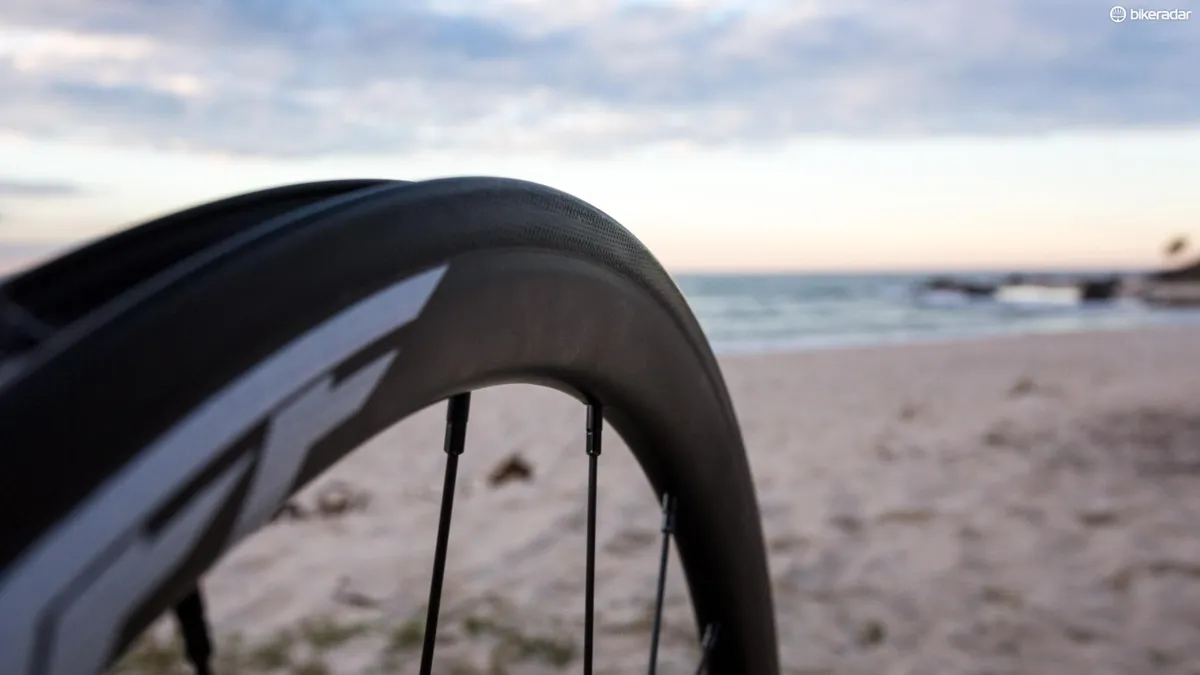
Verdict
Tuff Cycle's EXO 38s are an uber light wheelset, they're stiff, wide and tubeless ready. Not many more boxes to tick when it comes to modern wheels.
They are made with an open mould design, but are far from the only brand taking advantage of the manufacturing in the Far East. Tuff Cycle has picked a proven rim shape and the brand's layup has stood up to everyday riding. I was a bit surprised how many crosswinds grabbed the front wheel, but it is nothing close to the hang on for dear life feedback of wheels from only a few years back.
So far this is the best use of carbon fibre spokes I have experienced. When it comes to performance and maintenance in my short test period they have proved to be far superior to the non-tensioned fat carbon spokes Mavic uses.
The only area I can knock the MATRIX spokes down is for the use of proprietary components. If Paton and his team at Tuff Cycle can make the carbon spokes work with standard spoke nipples and hubs I think they'd have a winner.
Tuff Cycle's EXO 30-38s don't have a big brand behind them, but they also don't come with the big brand price tag, at £1,460 / $1,850 / AU$2,050 costing a fraction of what wheelsets of a comparable depth and weight do.
